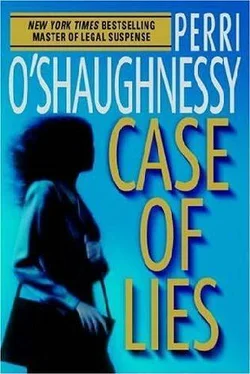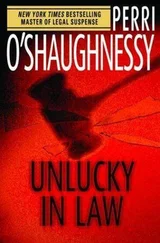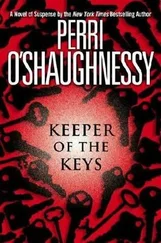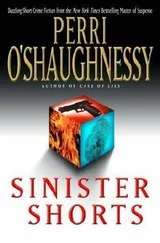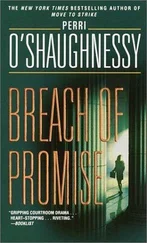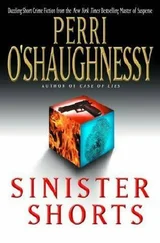“This is way beyond third-grade arithmetic,” Mr. Pell said. “Who told you to ask me these questions?” He still had a peculiar look, like he was really interested, too, and this emboldened Elliott.
“Nobody. My pop. He’s a Sanskrit scholar. What’s the square root of minus one?”
“You know what? I bet your father already told you the answer, told you it’s an imaginary number with its own number line.”
“Egg-zackly. So if you can set up a brand-new number line for negative square roots, why can’t you set up a new number line for one divided by zero?”
Mr. Pell looked down at him from the height of a mountain. He bent and picked up the chalk, and said in a low tone, close to Elliott’s ear, “Listen to me, kid. I’m going to tell you a secret. You’ll understand it better when you’re older. Do not tell the rest of the kids about this. You cause enough trouble already. They’ll get confused.”
Elliott raised his eyebrows. He tried to look nonchalant.
“You can divide by zero, if you invent another arithmetic. This arithmetic you’re learning-it’s just the one that works best for things like building houses. There are all kinds of arithmetics and geometries.”
Elliott understood immediately. His head swam. The relief was so overwhelming, he almost fell down. This arithmetic was a game, and there were other games.
“Got it?” Mr. Pell said. “Satisfied? Now beat it, would you? Please?”
On his tenth birthday, his father gave Elliott an old edition of Euclid ’s Elements . Winter had brought its cold wind to sweep down on the island. Elliott stayed up in his room for two weeks. When he came down he said, “I don’t understand this at all.”
“Let’s have a look.” They opened the book to Euclid ’s assumptions, the logical statements that are self-evident and are the basis of plane geometry.
“Two points make a line,” the book said.
“Why?” Elliott said. “The line could stop halfway to the second point. Or the two points could be on top of each other, so it looks like one point. Or the line could be wavy.”
“Oh, I quite agree. But you have to think like Euclid,” his father said. He smoked Marlboros. The smell of math to Elliott forever more would be connected to the smell of burning tobacco. They were in Pop’s warm den, piles of papers and books everywhere, the TV on a football game as usual. Elliott’s mother was sitting on the chair under the window, reading a book, her brown hair lit by the lamp.
“ Euclid developed a system that hangs together, that’s the main thing. Let’s try to make his sentence about points more accurate. He’s saying that if you take any two points in the universe, the simplest relations between them is generally a directional arrow that we call a line.”
“Okay. That makes sense. But why triangles? Angles and sides and all that. Why is a right triangle so important?”
Pop stubbed out one cigarette and fired up another one. “Because the Greeks discovered that they could say beautiful, simple, elegant things about right triangles. And because they could build houses using right triangles.”
“Houses again! How come it’s always about houses? Why not start with a-a cloud? Why not invent a formula for finding the volume of a cloud?”
“Too messy,” his father said. “ Euclid started with something easy and useful. In all fairness, he was fond of squares and circles too.”
“Why did he get to make up his own rules? They’re wrong!”
“The one about parallel lines may not always work. The others have stood up pretty well,” Pop said mildly.
“But what about two points making a line? I could make a system where they don’t, couldn’t I?”
“Attack the system at your own risk. I’m going to tell you a story.” Commercials had taken the place of football on the TV in the wall unit across from his father’s desk. He muted the sound and said, “A long time ago there was a genius named Pythagoras. He was a genius because he made some discoveries about the integers that no one had ever made before. These discoveries were so elegant, so incredible, that numbers became a religion. The Pythagoreans believed, for instance, that the cosmos formed from a one. It split into the integers, which formed themselves into geometrical shapes, and finally became air, earth, fire, and water. All Nature, all Reality, grew from Number.”
“Is it true?”
“I’m a linguist,” Pop said, “so I wouldn’t turn to Number. I suppose I could found a religion that said that in the beginning was the Word. Wait a minute, I’m already Episcopalian.” Elliott’s mother laughed.
“So the Pythagoreans were an important cult. The most important belief they held was that all Nature came from whole numbers, by which I mean integers and ratios of integers, what we call fractions today.
“Then one day something terrible happened. One of the Pythagoreans, maybe the Master himself, made a new discovery.” The football game came back on, but Pop was rolling now and his eyes went to the screen but his voice stayed with the story.
“They had just discovered the formula for finding the hypotenuse of a right-angle triangle,” he said. “A squared plus B squared equals C squared. Can you imagine how they must have felt, sitting in the shade on a summer’s day, looking at each other when they found this wonderful formula?” Elliott thought of the bearded men in white robes, sitting on steps by white columns, clapping each other on the back. It must have felt like winning the Super Bowl.
“Then somebody said, ‘Let’s try that triangle out with a side that measures a single unit, a one,’ ” Pop said. “They tried it out. And a devil sprang out! Because one squared plus one squared equals two. Therefore the hypotenuse was the square root of two.” He leaned toward Elliott and said in a chilling theatrical whisper, “And that number couldn’t exist.”
“Wow!” Elliott said.
“That thing, that square root of two, couldn’t be described as an integer or as a ratio. It completely contradicted the beautiful universe the Pythagoreans had constructed. Now they had a choice-to accept this ugly thing into their system and work with it, or to try to suppress the fact that it existed. To lie about it, because the Pythagorean religion could not encompass something as ill-formed, as unlocatable as this.”
“So what did they do?” Elliott’s mother said.
“They swore the whole brotherhood to strict secrecy. This secret made a mockery of their beliefs. Now their religion was based on a lie.”
“What happened?” Elliott asked. He lay on the rug, his head propped in his hands, near the fireplace, the book forgotten. It was almost nine, but he wasn’t feeling sleepy, he was all fired up.
“A young man named Hippasus leaked the secret,” Pop said. “And you know what happened then?”
“What?”
“They killed him. Set fire to a ship he was on near Calabria. Sunk it.”
“The Pythagoreans did that?” Elliott gasped.
“Never underestimate the passion of a mathematician,” Pop said. “Of course, the secret was already out. Nowadays we call those ugly numbers the irrational numbers.”
“We let those numbers in?”
“And even uglier things. The imaginary numbers. The transcendents. The transfinites.”
“Poor Hippasus,” his mother said. She dog-eared her page and went into the kitchen.
“Those numbers aren’t real,” Elliott said. “Not like One and Two.”
“Prove they don’t exist and I’ll give you a canoe,” his father said.
In this way Elliott learned that what his intuition told him was only acceptable to other people if he could show them a proof. Elliott became obsessed with mathematical proofs. He had found his own language, a language his father couldn’t learn any more than Elliott could remember the conjugation of a Sanskrit verb.
Читать дальше
